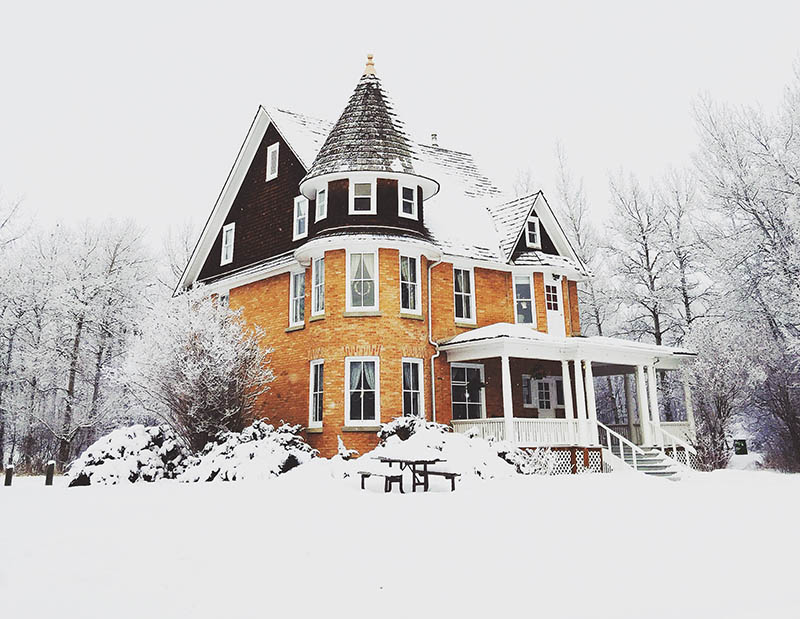How Do I Stop My Basement From Seeping Water

No Royal Oak homeowner wants to find water in their basement. One of the most common problems in Royal Oak homes with basements is water seeping inside and pooling. There are several factors that cause basement wetting. Typically, wet basements occur during the winter months or after heavy rains. If left unchecked, basement moisture can not only ruin floors and walls but can also lead to mold growth and can even damage the roofing as well. So, how do you stop water from seeping into my basement?
Basement waterproofing can go a long way in solving these problems. First, let’s discuss some of the essential items that you need to know about your leaking basement.
Reasons for Water Seeping Inside Your Basement:
There are many ways water can get into your basement, including:
Over Walls:
If your home has poor drainage, rainwater and melting snow can get into your basement from the top of your foundation walls. Because of this it’s recommended to opt for professional drainage and excavation services that will build a drainage plan that can divert rainwater away from buildings into proper groundwater channels.
Construction Holes:
Any holes left during the time of your home’s construction can increase the chances of water getting into the basement. If there are any cracks in your foundation, they can create channels for water to enter.
Sump Pump Failures:
A sump pump is in sync with the pump permanently installed in your basement. If your sump pump connects to sanitary sewers, there is an increased chance it will cause a sewage backup in the basement. However, poor sump pump maintenance, power failure or clogged discharge lines can also allow water in the basement.
Honeycomb:
If you have a poured solid foundation, improperly blended cement can create air pockets in the structure that resembles a honeycomb. As water rushes against these honeycombs, they can cause openings or even cracks in your foundation that lets water in the basement.
Floor Cracks:
Pressure from the water beneath your home can cause cracks in the basement floor, which in turn can allow water to come up through the basement. This pressure is due to poor drainage and if you have water in the basement after the rain has stopped, then it may cause floor cracks.
Sewer Lines:
Sewer pipes can let water into your basement in a few different ways. If your sewer line goes through your foundation floor and wall, the seal can weaken over time and allow water in. The joints between your drainpipes and your main sewer line can also wear out, which allows wastewater to seep into your basement.
The worst-case scenario is that your sewer lines back up and results in sewage to flooding your basement. A blockage in your main sewer line is the most likely cause of this type of backup. However, heavy rains can also cause a problem. Routing gutters and downspouts into sanitary sewers can cause an overload of water flowing through the system, which then leads to a backup.
Whether due to a blockages or heavy rains, municipal sewers can back up too.
Plumbing Leaks:
Leaky plumbing is yet another common cause of water in the basement. Many pipes run through your basement, carrying clean water to sinks, toilets, and bathtubs and then carrying wastewater away from drains. In the winter, frozen and burst water pipe are also a leading cause of water seepage.
Water Supply Lines:
Like sewer lines, water supply lines can also lead to water in your basement. The seals around your water supply line can weaken over time and while a supply line issue can cause catastrophic water damage, the valve on your supply line is most likely to develop a slow leak.
Now that we’ve covered the reasons for water seeping inside your basement, lets look at how to avoid it.
How Do You Waterproof a Basement from Inside?
There are several methods for waterproofing basement walls from inside. Please note that none of these products will work for basement waterproofing until and unless any gaps and cracks are properly sealed. Therefore, it’s essential to opt for professional basement wall crack repair and waterproofing if you aren’t able to control it.
1. Concrete Waterproofing Coatings:
These products create a cement-like thick coating. They are a long-lasting solution for your concrete and masonry walls, and you have to option while applying to swirl the brush and give an attractive yet finished look.
2. Using Densifiers aka Silicate-Based Concrete Sealers:
These sealers are best suited for walls that haven’t been sealed or painted. They work best with brick or concrete because the sealers soak into the concrete and chemically react with the ingredients, forming a hard and waterproof surface. They cannot get peeled or flaked off.
3. Waterproofing Paint:
This specific type of paint is an acrylic formula. It is sprayed or brushed on significantly thicker than ordinary wall paint. 1 gallon covers only 75 square feet, unlike the standard paint that usually covers 300 square feet.
4. Using Plastic Sheets and Panels:
These are best suited for waterproofing interior basement drainage systems. They not only stop water from getting through the walls but also can stop it from ruining your important things in the basement.
Is Waterproofing a Basement Worth It?
Getting a good ROI for home services and repairs is important. You always want to get the best value for every dollar spent because these services are an investment.
When looking at the return on investment for your waterproofing basement walls, you can expect about 30% ROI from a basement waterproofing job. This is a genuine ROI value in addition to the many benefits it brings to your home and resale value.
If you have water in your basement and want to learn more about basement waterproofing, get in touch with professionals. They are experts in solving all your water damage related problems and work with you to ensure your basement is watertight and safe.

